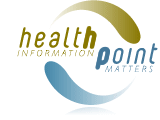Pregnancy Care
Because pregnancy care is so important for your health and the health of your baby, it is free for all NZ citizens, residents and many other visa holders. Your midwife will give you advice on keeping yourself healthy in pregnancy and you will be offered regular appointments so your midwife can monitor your progress. Your midwife will be looking out for any signs that you or your baby are becoming unwell. Some conditions in pregnancy may not be obvious to the untrained eye, so attending appointments is vital. Your midwife will order blood tests and ultrasound scans as required. Please make sure you undertake these tests promptly so that any problems can be detected early. If any problems are indentified you will be referred to a hospital specialist, who will make a plan of care with you and your midwife.
Your midwife will talk to you about what you want for your pregnancy and will plan your care with you. You will be asked to think about the kind of labour and birth you would like and your preferences will be recorded. It is a good idea to attend a childbirth education course, especially if this is your first baby.
Pregnancy Check-ups and Tests
First Trimester (0 - 14 weeks)
- Antenatal visits are usually once a month but may need to be more frequent, a care plan will be formulated for your needs;
- Ultrasound scan: pre-natal testing will be discussed with you at your booking visit.
- Booking visits usually take 1 hour. This includes an explanation of how the clinic runs. During your visit your medical and obstetric history is recorded. Your height, weight and blood pressure is measured and you will do a urine test. We will answer any questions or queries you may have.
Second Trimester (15 - 28 weeks):
- Antenatal visits usually occur monthly but may need to be more frequent. At each antenatal check-up your midwife will check your blood pressure, test your urine, listen to the baby's heartbeat (12 weeks onwards) and palpate your abdomen.
- Ultrasound: An anatomy scan will be discussed and offered at around 18 weeks. Some women may need increased surveillance (i.e. twin pregnancies)
- Polycose Testing: Between 26- 28 weeks, it may be recommended earlier if diabetes is suspected. This test is free and is carried out at Labtest.
Third Trimester (29 - 40 weeks):
- Weeks 29-35: Check ups are usually once every two weeks, but may be more frequent.
- Weeks 36-40: Check ups are usually once a week, but may be more frequent.
Additional Tests During Pregnancy:
Consult your midwife if you wish to discuss these:
- Chorionic villus sampling (CVS)
- Amniocentesis
- Maternal serum Sampling
Development of Your Care/Birth Plans
Your LMC is responsible for organising your maternity care. They may provide all your care or share the care with one other, or more, practitioners. They also provide information to assist with decision-making during pregnancy, preparation of the birth and for parenting.
Topics will include a wide range of matters such as nutrition, exercise, the risks of smoking and alcohol, labour and the birth process, pain relief, breastfeeding, baby care, immunisation, community services, contraception and many more.
It is important that you have a 24 hour contact number for your LMC and that back-up arrangements have been discussed with you in case your LMC is unavailable at any stage.
The Maternal Fetal Medicine Clinics (High Risk) are a tertiary service. We offer a consultation service and in some cases, because of the complexities of the women and babies we care for, become their LMC.
